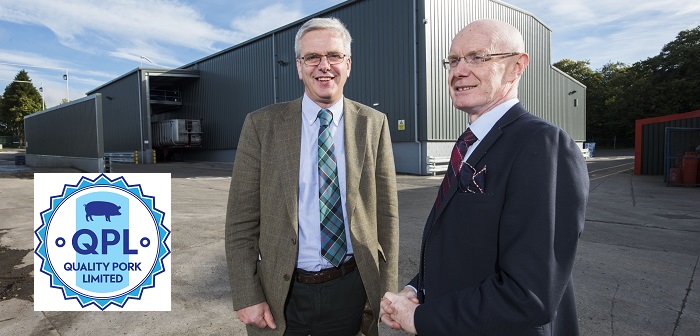Scottish pig industry leaders have expressed concern about potential animal welfare problems on farms ahead of the closure this week of the Brechin plant due to CO2 shortages.
As reported by Pig World on Friday, Scotland’s biggest pig processing plant is set to run out of CO2 on Tuesday, on the back of an EU-wide shortage of the gas, which is used as part of the pre-slaughter stunning process.
Quality Pork Limited, which, in collaboration with Tulip and the Scottish Pork Producers (SPP), puts about 6,000 pigs a week through the Brechin abattoir, is considering sending some animals to Tulip plants in England, a contingency deployed last year following a fire in England. However, these plants are also facing CO2 shortages.
SPP chief executive Andy McGowan told the BBC that the abattoir could start to see animal welfare issues develop within a few days because of overcrowding.
“We can send some pigs to England, to our sister factories at Tulip. But that is not a long-term solution. They, too, are seeing CO2 shortages,” he said.
Mr McGowan said he had little idea when CO2 shipments would resume. “One of the challenges is that we are not getting any sort of commitment from the gas companies. It makes planning difficult,” he said.
Commenting on the situation on farms, he said: “This week is probably manageable as most farms have a certain amount of slack. As this goes on and on, with no signs of ending, it is going to become increasingly difficult to keep finding the little bits of space for the pigs that should have been moved off the farm so the ones coming up behind can move into that space.”
He added that the meat processing doesn’t have ‘any contingency plans of scale’ as abattoirs all over the country are running out of CO2 as well. “With the volume of pigs, there aren’t really any viable alternatives,” he said.
He warned that the situation could result in shortages in pork products in supermarkets.
Tulip said it had sought approval from regulators so that Scottish pigs processed in its English abattoir’s could still carry a Quality Meat Scotland kitemark.
“We remain extremely concerned about the lack of CO₂,” said a spokesman for Tulip. “We are in regular communication with our supply partner, although there is currently very limited information.”
Other sectors, notably beer and soft drinks, have also been affected. But in meetings held to discuss the situation, representatives from the farming and meat sectors have issued requests for the meat industry to be given priority because of animal welfare concerns.
“Our processors deal with live animals,” the British Meat Processors’ Association said. “The CO2 shortage has the potential to become an animal welfare issue. We have been asking to be treated as a priority.”
National Pig Association chief executive Zoe Davies said the issue was different for every plant, with some having alternative methods in place, although throughput is likely to affected.
“We advise producers speak to their marketing group or processor if concerned. We are not aware of any major disruption at other plants yet, but clearly this situation may change should the gas supply situation not be resolved. It would be sensible for all producers to think about what they would do should supply be disrupted.”




